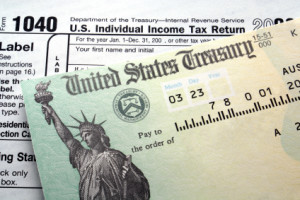 Today’s top story: Small home fixes can have a big impact on safety. Also in the news: A new episode of the SmartMoney podcast on student loan debt, why you need to inspect the used car you bought sight unseen, and check whether your Toyota or Lexus is part of a massive recall.
Today’s top story: Small home fixes can have a big impact on safety. Also in the news: A new episode of the SmartMoney podcast on student loan debt, why you need to inspect the used car you bought sight unseen, and check whether your Toyota or Lexus is part of a massive recall.
Small Home Fixes Can Have a Big Impact on Safety
If it ain’t broke, maybe you should fix it anyway.
Smart Money Podcast: How We Got to $1.75 Trillion in Student Loan Debt
Learn the history behind the rising cost of college and how 43 million Americans landed with student loan debt.
Inspect That Used Car You Bought Sight Unseen
Check Whether Your Toyota or Lexus Is Part of This Massive Recall
More than 500,000 vehicles are thought to have a software error.
 Today’s top story: How the toy shortage could affect your holiday. Also in the news: How to pay for home improvements without equity, 3 free ways to run your business more smoothly, and how to save money like a ‘super saver’.
Today’s top story: How the toy shortage could affect your holiday. Also in the news: How to pay for home improvements without equity, 3 free ways to run your business more smoothly, and how to save money like a ‘super saver’. Today’s top story: What you need to know about the new FICO score. Also in the news: 5 reasons to add beneficiaries to your investment accounts now, 5 home improvements that may not pay off when you sell, and what to do if you lose your credit or debit card while traveling.
Today’s top story: What you need to know about the new FICO score. Also in the news: 5 reasons to add beneficiaries to your investment accounts now, 5 home improvements that may not pay off when you sell, and what to do if you lose your credit or debit card while traveling. Today’s top story: At what age can you ignore your credit score? Also in the news: How to keep home improvements under budget, how holiday shopping plans are being influenced by the trade war, and 5 ways to spend down your 2018 FSA.
Today’s top story: At what age can you ignore your credit score? Also in the news: How to keep home improvements under budget, how holiday shopping plans are being influenced by the trade war, and 5 ways to spend down your 2018 FSA. Today’s top story: Lay groundwork for better home value with artful landscaping. Also in the news: How to manage the cost to finish a basement, more Wells Fargo refunds are coming, and how long you should keep your tax returns.
Today’s top story: Lay groundwork for better home value with artful landscaping. Also in the news: How to manage the cost to finish a basement, more Wells Fargo refunds are coming, and how long you should keep your tax returns. Today’s top story: Home improvements that don’t pay off in the long run. Also in the news: How to build a budget, easy ways to vet financial aid offers, and how to lay the financial groundwork for a career change.
Today’s top story: Home improvements that don’t pay off in the long run. Also in the news: How to build a budget, easy ways to vet financial aid offers, and how to lay the financial groundwork for a career change.